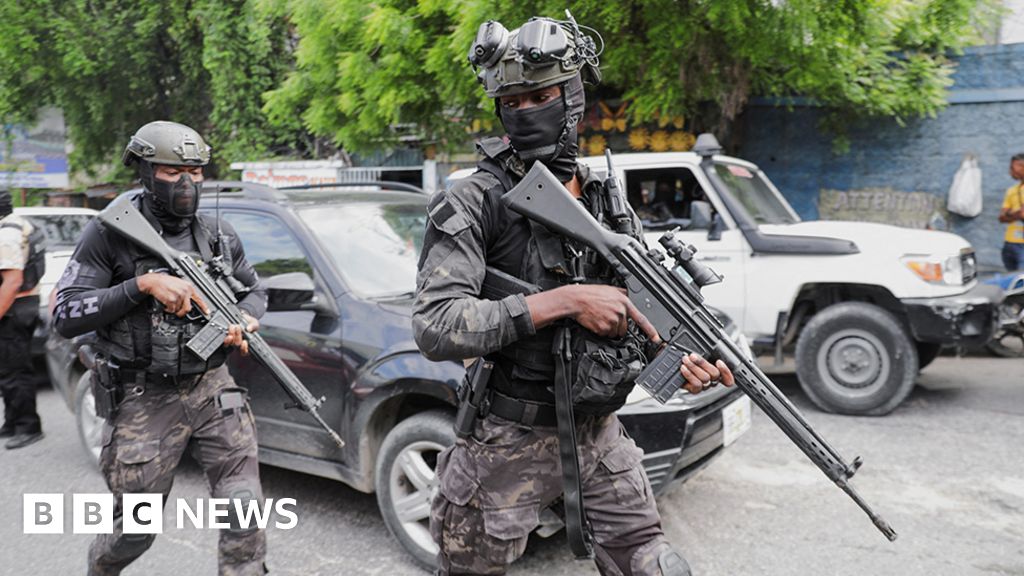Haiti's Prime Minister Ariel Henry resigned on Thursday as a new council was sworn in to lead a country plagued by deadly gang violence.
The recent outbreak of violence forced authorities to move the ceremony from the National Palace to the outgoing prime minister's residence.
Henry agreed to resign last month after armed groups blocked his return.
Currently, much of the capital Port-au-Prince is controlled by gangs.
They took advantage of the power vacuum created by the Prime Minister's resignation and expanded their control over the entire country, which is now a de facto lawless zone.
Mr Henry said he was resigning after being prevented from returning from Kenya, where he signed an agreement to bring in multinational security forces to restore law and order. His resignation was formally announced in a letter dated April 24 and signed in Los Angeles.
Nine members of the transitional council are currently sworn in, seven of whom have voting rights. Henry's finance minister, Patrick Boisvert, will serve as interim prime minister.
The council aims to restore order and democratic governance to Haiti and is supported by other Caribbean countries and the United States.
It will set the agenda for the new cabinet, establish a national security council and appoint an election commission to pave the way for a vote.
That non-renewable mandate expires on February 7, 2026, when a new president is scheduled to take office.
image source, Getty Images
Thursday's swearing-in ceremony itself was caught up in the rampant gang violence across the country.
Gunshots were heard near the National Palace where the event was scheduled to be held, so the venue was changed to the prime minister's official residence, known as Villa d'Acuille.
The gangs that previously attacked the palace promised to disrupt the ceremony. On Wednesday, police used tear gas to disperse crowds on nearby streets.
Jimmy Cheridier, one of Haiti's most powerful gang leaders, threatens in a social media video: “Whether you are under arrest or not, this message is for you. Brace yourselves.” did.
Mr Chérisier, also known as Barbecue, is the most prominent figure in a loose confederation of gangs known as Viv Ansammé (Living Together), which controls about 80% of Port-au-Prince.
Last month, he said he would consider laying down arms if armed groups were allowed to participate in talks to form a new government.
He said he was “not proud” of the escalating violence in Haiti and said the crisis could continue unless groups like his, which denounce “corrupt politicians”, are included in future governments. I warned you.
According to the report, more than 1,500 people were killed and more than 800 injured in the first three months of 2024.
The report detailed the gang's “appalling practices”, which are accused of using extreme violence and sexual abuse as a means of punishment and control.
Aid groups report difficulties in accessing food and water to the capital, warning that millions of people are unable to find food and some are on the verge of starvation.
Haiti: Basics
- This Caribbean country borders the Dominican Republic and has an estimated population of 11.5 million people
- With an area of 27,800 square kilometers, it is slightly smaller than Belgium and about the same size as the US state of Maryland.
- Chronic instability, dictatorship and natural disasters in recent decades have made Haiti the poorest country in the Americas.
- The 2010 earthquake killed more than 200,000 people and caused severe damage to infrastructure and the economy.
- The UN peacekeeping force was created in 2004 to stabilize the country, but only withdrew in 2017.
- In July 2021, President Jouvenel Moïse was assassinated by an unknown armed group in Port-au-Prince.Amid political gridlock, the country remains plagued by riots and gang violence


